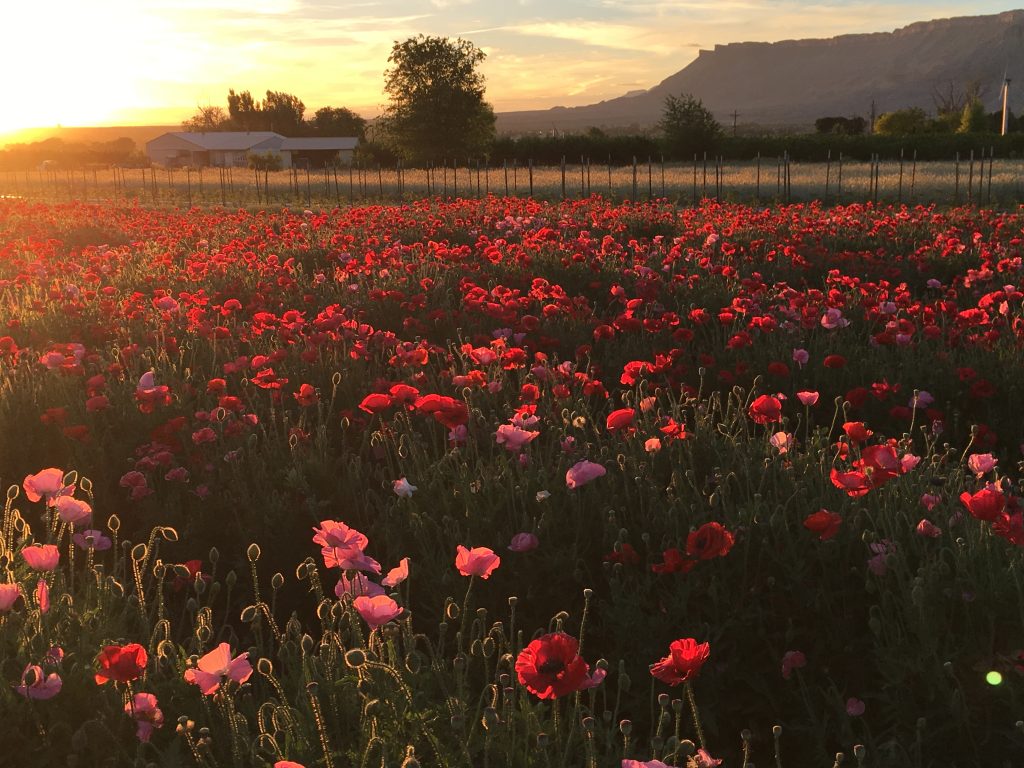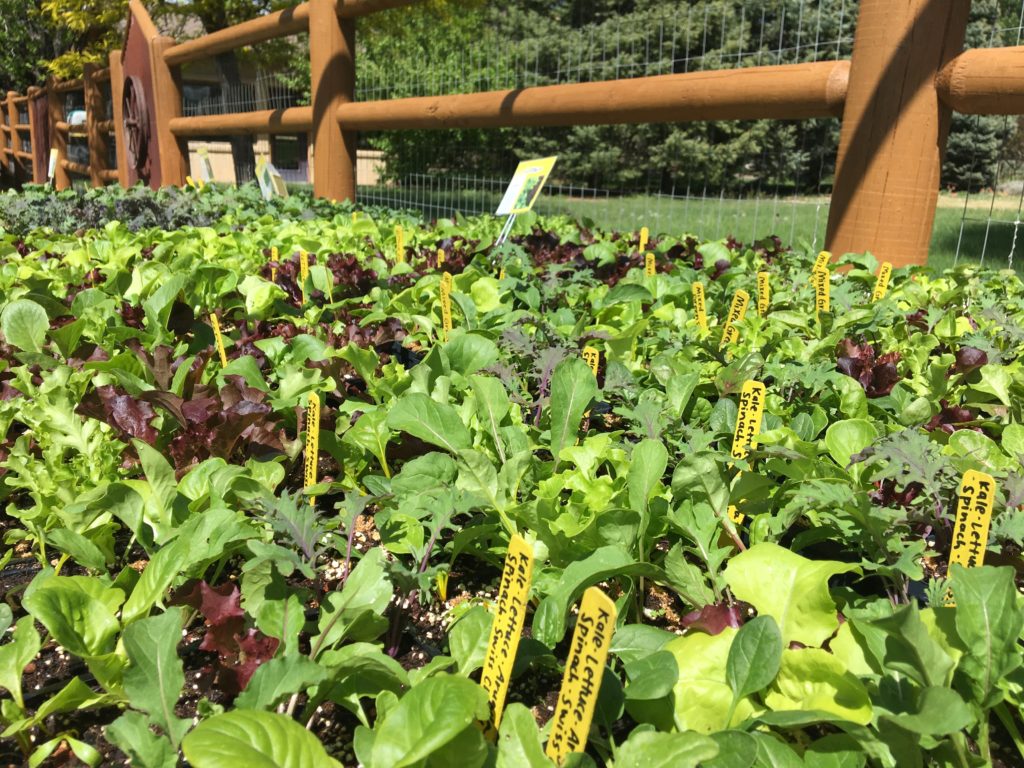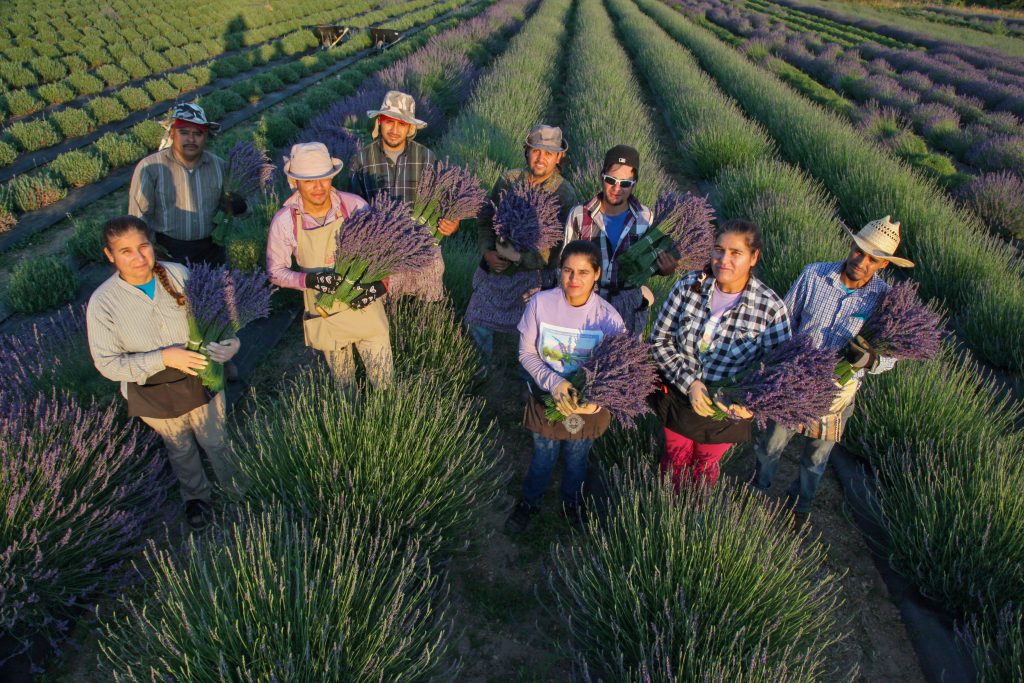In 2005, my husband Bobby and I moved to Palisade to start a farm and raise our family in Colorado’s clean air. After 15+ years in the agriculture world, I wanted to put sustainable methods into practice — to grow plants and products in a way that respects soil life, the watershed, and the many hands that cultivate our little plot of earth.
Our family grew, ebbing and flowing with seasonal tasks and the fruits of our labor. Being a mom of two parallels sustainable farming in so many ways: Balancing costs and benefits happens every step of the way; thoughtfulness and resilience are key.
Since the beginning
For more than ten years, Sage Creations was a certified organic farm. This year, we have signs up everywhere at our farm: Due to a technical issue, our organic certification has been temporarily suspended, and we are currently not considered “certified organic”.
We are currently working on being reinstated to be certified organic. But in the meantime…. Thank you! I am hoping we are granted reinstatement for this year’s harvest, mainly for the long-term customers that rely on on the crop to be certified organic.
While the technicality has raised more than a few logistical challenges, it’s also brought us to thinking hard about what the certification really means, and how sustainability is, at its core, so much more than a label.
Sustainable farming is a way of life. It’s a way of relating to nature and community.

For years, we’ve educated our community about our farming practices, sharing stories about farmer blues, fall freezes, making eco-friendly choices, farmhands, growing tomatoes, propagating lavender, making sage creations, springtime, the flower industry, choosing local, and so much more.
Still, we see the power — and necessity — of pulling back the curtain. Throughout this experience of struggling with a technical misstep, we’ve begun to understand sustainability in an even deeper way.
Sustainable farming isn’t just about sourcing the right materials, opting for methods that are often more time-consuming and expensive because of the value they bring to soil, water, pollinators and people — It’s also about closing the loop by furthering our collective understanding and appreciation of food and the natural world.
We’re committed to sustainability from the ground up and beyond — certified or not.
Nourishing soil life and protecting our watershed
In our fields, we keep tilling to a minimum, protecting the critters and organisms that live in the soil. We don’t use harmful herbicides or synthetic fertilizers, because these chemicals sink into the land and find their way into the watershed. We encourage beneficial insects through diversified plant hedge rows, companion planting and insect releases.
Keeping plants local
Supporting local businesses makes for a thriving community. Buying local is also good for the environment, generally requiring less energy and transportation of goods. Finding locally grown plant starts can be a challenge — the norm is for plant starts to be shipped into big stores or nurseries, and we wanted to offer our community another way.

Nursery owners, greenhouse tenders and professional growers structure their lives around the seasonal patterns of their local environments. Acute to the precise qualities of their region’s climate, they know how a late freeze affects each and every vegetable. They know how high-altitude sun impacts herbs, and how chilly desert nights make for sweeter fruits.
They know their plants inside and out – fully, deeply, with passion. Your local grower has the lived experience to hand-pick plant varieties that will do best in your local environment – and they do, because that is their way.
The plants you buy from your local greenhouse have grown up in your climate. They don’t have to adapt to a new environment after you take them home. Local plants are fresh plants – not tired and stressed from being transported across the state or country.
Local plants are fresh plants, and fresh plants are healthy plants.
At Sage Creations, we spend all year nurturing and caring for plants that grow well in our high-altitude, desert climate. And we never sacrifice our growing philosophies along the way.
To combat harsh winters and weeds, we always use natural remedies. We choose non-GMO, open-pollinated seeds – organic whenever possible. We nurture our seedlings using natural and organic fertilizers, transplanting them into biodegradable or recyclable pots.
Each spring, we release thousands of ladybugs and lacewings to control pesky insects. In our lavender fields, cherry orchard and tomato and pepper patches, we always weed by hand and never spray. We believe in paying our farm employees sustainable wages, and we make every effort to re-use and recycle as much as we can.
Sustainable wages
Our team works hard — and that’s an understatement. Farming is beautiful, rewarding work. It’s also challenging. We flow with the seasons, taking a little more downtime in the winter, and bustling in the summer. We believe in paying our workers sustainable wages, and that’s part of the fabric of our sustainability.
Embracing this opportunity
There are so many stories to tell, and we’re committed to keep telling them, so that you know exactly the kind of work and philosophies you’re investing in when you choose our plants for your garden, our essential oils for your pillow case, our wreaths for your door.
Thanks for being a part of our community, and for sharing your stories of sustainability with us, too.



Lawrie Nickerson
Hi Paola:
Thank you for this. We love your lavender plants and they do very well here on our Northeast moist and also cold environment. Our farm is very much tuned in with the kind of sustainability that you describe. We have recently constructed swale and berm rain-catching earthworks on contour in our hills so that our newly-planted perennial nut trees and shrubs will be irrigated by rain. We only use organic fertilizers, and use no toxins at all to control pests, diseases or “weeds.” We are not certified organic, but appreciate the organic certification you work hard to achieve. And we especially applaud your appreciation that sustainability goes hand in hand and sometimes beyond organic. Kudos.
Paola Legarre
Hi Lawrie
Your farm sounds to lovely and one day I hope to see it in person. Thank you for sharing how you are farming and contributing to sustainable farming and preserving ecosystems.